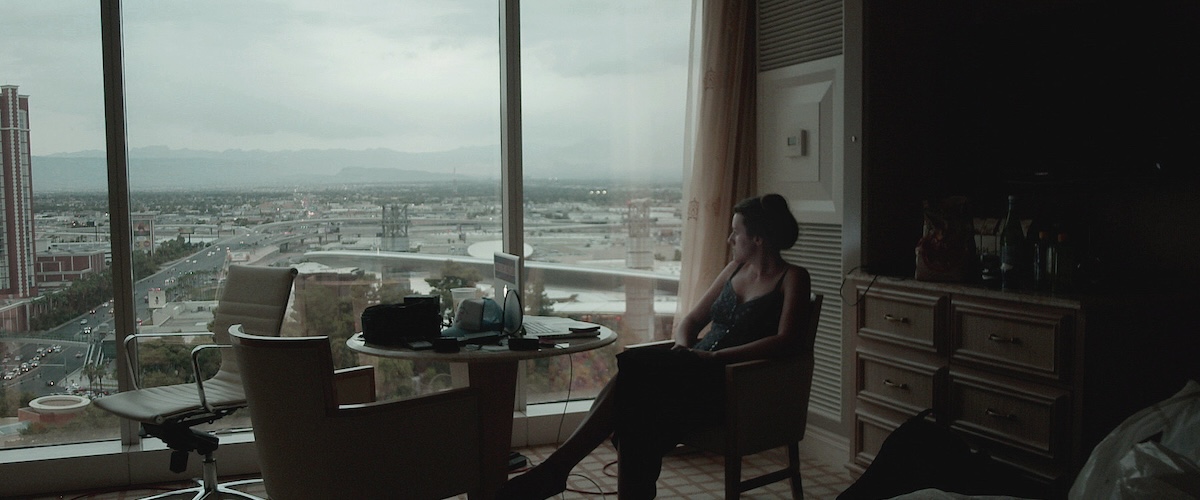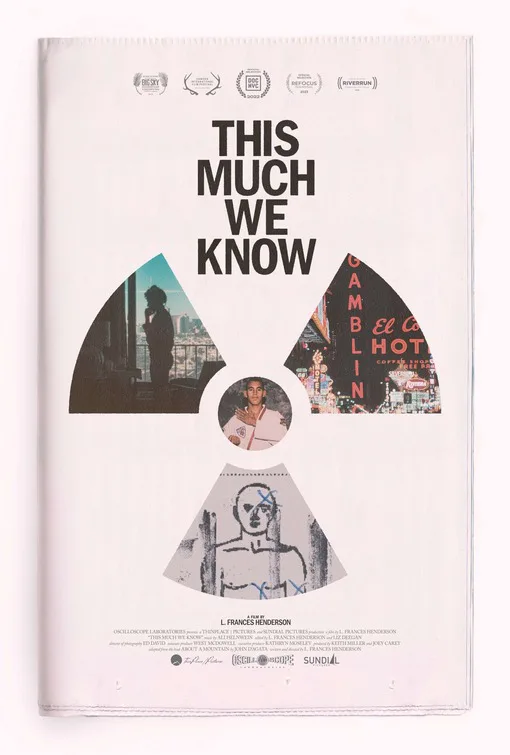“This Much We Know” focuses largely on 16-year-old Levi Presley, who died by suicide in 2002 after jumping from the top of the Stratosphere Tower in Las Vegas, a city with a startling suicide rate. The same week he did so, the United States government designated Nevada’s Yucca Mountain as a site of nuclear storage. Through interviews with Levi’s friends and family, musings on the culture of Vegas, and investigations into Yucca Mountain, Henderson examines ideals vs. reality as it pertains to American culture and those who live within it. A documentary adaptation of writer John D’Agata’s About a Mountain, “This Much We Know” is the definition of searching for a full answer. Utilizing a chapter format of who, what, where, when, why, and how, filmmaker Lily Frances Henderson, mourning the loss of an adolescent friend, travels to Las Vegas to investigate what leads people to take their lives.
The film is a documentary and a personal essay all in one. Henderson is as ubiquitous in this story as Levi or the city of Las Vegas itself. She’s in the frame, asking questions, challenging the viewer and the subjects equally, begging questions, and refusing simple answers. What does death mean? Does it change when a person chooses it for themselves? Why?
Her inclusion makes the dissection of these existential politics all the more grounded. She is a narrative liaison and a philosophical foil to those she interviews. One particular debate with a former Las Vegas coroner sees them arguing over the definitiveness of suicide vs homicide. She mentions that homicide has subcategories: murder, manslaughter, negligent homicide, etc., while suicide has none. The coroner, in line with these categorical formats, views suicide as an act without nuance, shutting Henderson down as she asserts that it can be accidental.
Henderson’s humanity shows through every aspect of the film, for better and worse, as she navigates her own grief, finding parallels with her unnamed friend and Levi, as well as her mournful denial that her friend, who shot herself, didn’t mean to do it. However, a certain level of self-centeredness sours some of the deeply emotional moments with Levi’s friends and family. She pushes them for answers to her questions (some of which are asked with a less than tactful delivery), and there’s an overall discomfort as the emotional disconnect between her and the family is apparent.
There’s a sense that she’s looking to pursue clarity on her loss through another family’s grief. Though Levi is portrayed and afforded the holistic depiction of a full and nuanced human, Henderson’s individual treatment of his story feels more like a somewhat exploitative instrument for her thesis and personal reckoning. Any context on her friendship with the woman she lost, even down to the woman’s name, is shrouded from any exposure, yet every detail of Levi’s life and death is declared cyclically through the film’s runtime. Henderson seems to protect her grief while sliding everyone else’s under her microscope.
The use of Las Vegas’ iconography as a symbol of the American Dream is one of the strongest throughlines of the film. Neon lights illuminate the night, sporadic love gives way to sudden weddings, and money flies in and out of pockets. The city is peak American romanticism. Yet about 80 miles away, there’s enough nuclear waste in the mountains that loom over the land “to kill every Las Vegas resident 4.5 million times over.” It’s love, sex, money, and death. The fallacy of the American Dream: flashy promises on the main road with government-issued fatality lurking on the outskirts. “This Much We Know” wonders how long it takes until the underbelly breaks onto the surface.
The film doesn’t assert a helpless human fragility. Instead, it enforces the power of a question. As much as Henderson is looking for answers, she’s demanding an appreciation for the implication of asking. She doesn’t seamlessly connect her investigations into Levi, Yucca Mountain, and Las Vegas history, leaving parts of the documentary feeling disjointed, but the effort is emotionally recognizable enough to leave you with impactful questions of your own.
Now playing in theaters.




















